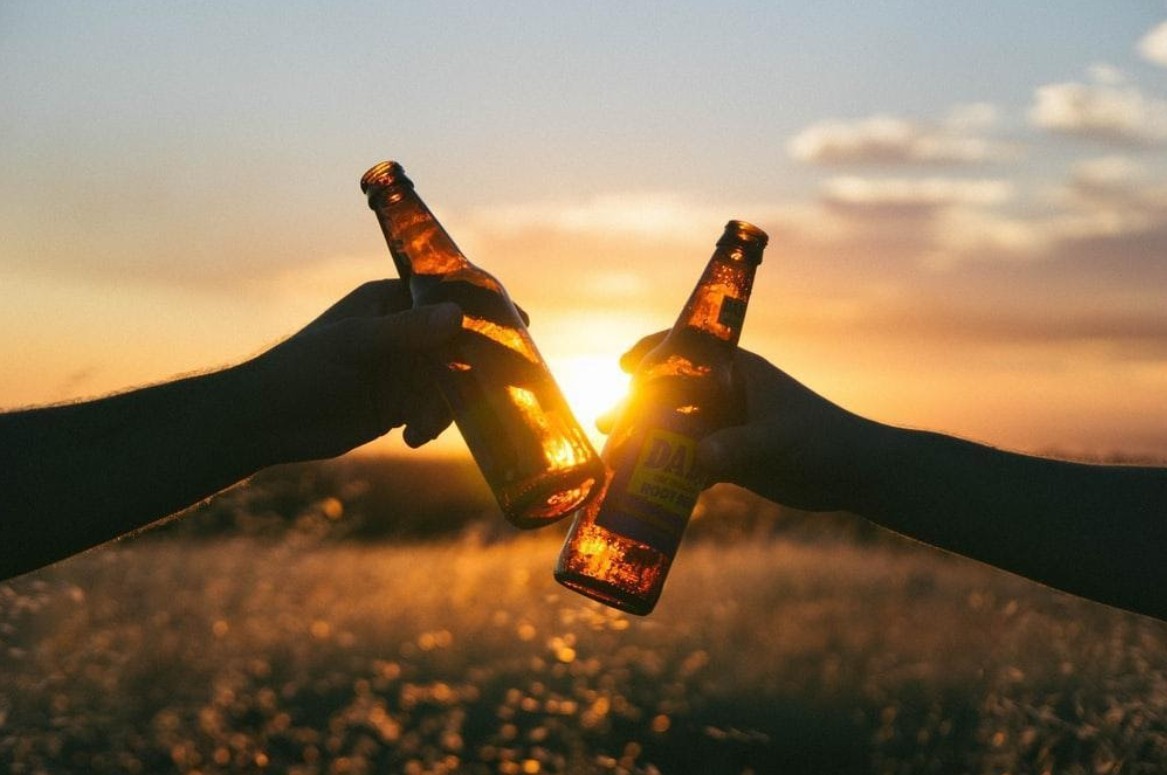
What Are the Effects of Alcohol on Your Health?
Emotional Effects of Alcohol, Addiction Signs, & When to Get Therapy
What are the effects of alcohol on your emotions?
This article tells you everything about the impact of alcohol on your emotional well-being. You’ll learn how alcohol affects your mood and brain chemistry and how it is connected to anxiety, depression, and anger.
Furthermore, we tell you the signs of an alcohol problem, when to seek professional help, and how text therapy can help you.
How Does Alcohol Affect Our Mood?
What happens to your body when you take alcohol?
Your body releases serotonin and endorphins hormones that help regulate your emotions and sense of happiness or relaxation. On the ground, some minutes after taking your first sip, alcohol might elevate your confidence and limit your inhibitions. As a result, you are bound to become more talkative and even feel more confident.
For many, this subtle effect of alcohol is entirely okay. But excessive or even mild intake of alcohol has a negative impact on your mood.
Eventually, the more frequently you drink, the more your brain becomes impacted by alcohol. In turn, this makes your moods start becoming “erratic.”
After a night of binging, you might experience a mixture of emotions, even though you were doing well in the first place. You might feel depressed, angry, or even anxious.
We’ll take a look at how alcohol is connected with these emotions and conditions below.

How Does Alcohol Affect Our Brain Chemistry?
What are the short-term and long-term effects of alcohol on the brain?
Overdoing alcohol can lead to alcohol poisoning. Symptoms of this include a slowed heart rate, seizures, vomiting, respiratory suppression, and trouble staying conscious.

Long-term alcohol use can cause damage to your brain and result in neurological complications.
Alcohol and Anxiety
What are the emotional effects of alcohol?
As mentioned above, alcohol is connected to anger, depression, and anxiety.
If you struggle with anxiety, you might turn to alcohol to relax and fit in with others. While this might work on the day, you are bound to start worrying about some of the things you did or said the following day.
Given this, it’s not advisable to turn to alcohol to deal with your anxiety. You might get a momentary reprieve, but this might lay the ground for anxiety and stress triggers and alcohol addiction.
Alcohol and Depression
The connection between alcohol abuse and depression is remarkably evident. Nonetheless, it can be pretty challenging to determine where one issue stops and where the other starts.
You might take alcohol to deal with your depressing problems, and in another case, you become depressed from the alcohol drinking act. Studies show that about a third of people with major depressive disorder have alcohol problems.
Alcohol and Anger
Do you sometimes find yourself in a fit of rage after a couple of shots or beers?

Well, anger is one of the known negative effects of alcohol. While alcohol doesn’t actually cause anger, it triggers the expression of anger. That is to say, when a person who is prone to rage gets drunk, they are likely to express their anger more often and much more intensely.
Signs That You May Have an Alcohol Problem

The distinction between mild alcohol drinking to relax and harmful alcohol drinking isn’t all that clear for most people. Often, people cross the line, becoming alcohol-dependent and suffering from the long-term emotional effects of alcohol.
Factors such as cultural influences and social pressure can quickly lead to an alcohol problem. However, the stigma surrounding alcoholism often leads to denial and reluctance to address the issue.
It’s important to identify when you or your loved one has an alcohol problem to address it before it spirals out of control.
Here are some signs:
- You are often drunk
- You never turn down offers of alcohol
- You drink more often or for longer than you plan to
- You are addicted to the feeling alcohol gives you and therefore consume it more often
- Your use of alcohol has started to affect your job, home, or relationships with people
- You have substituted activities you used to enjoy with alcohol
- You often experience gaps in memory after drinking;
- You have tried to reduce your consumption but have been unable to
- You sometimes lie to hide your alcohol use to those around you
- You’ve begun to drink alone or in secret
- Alcohol has isolated you from your loved ones
An alcohol problem can turn into alcohol addiction if it’s not nipped at the bud. Once it turns into an addiction, you start to struggle with relentless cravings and prioritize alcohol over everything else.
Alcohol addiction may become so bad that if you stop drinking, you experience withdrawal symptoms like:
- Sweats
- Shakes
- Irritability
- Insomnia
- Anxiety
- Headaches
- Seizures
- Stress
When to Seek Professional Help

The first step to dealing with unhealthy alcohol consumption is identifying that you have a problem. However, realizing that you are abusing alcohol and trying to stop by yourself might not always work.
So, the next step is accepting that you may need help to tackle the issues and start leading a normal life.
Talking to a therapist or going to rehab for alcohol addiction can help you overcome the mental and emotional effects of alcohol. Therapy techniques such as Cognitive Behavioral Therapy (CBT) have proven effective in treating alcohol problems.
Therapy will help you explore your experiences, struggles, thoughts, and beliefs to figure out the underlying causes of your alcohol misuse.
If you’re looking for convenient therapy you can get at home, try the Calmerry online therapy platform.
Takeaway
Alcohol consumption can sometimes turn into a problem. Tackle it before it becomes an addiction by focusing on the benefits of being sober, setting and achieving goals, leading a happy life, and seeking therapy.
Online therapy can help you overcome alcohol abuse as well as associated mental health issues. Remember to be compassionate with yourself as the journey to overcoming alcohol misuse isn’t always straightforward.







